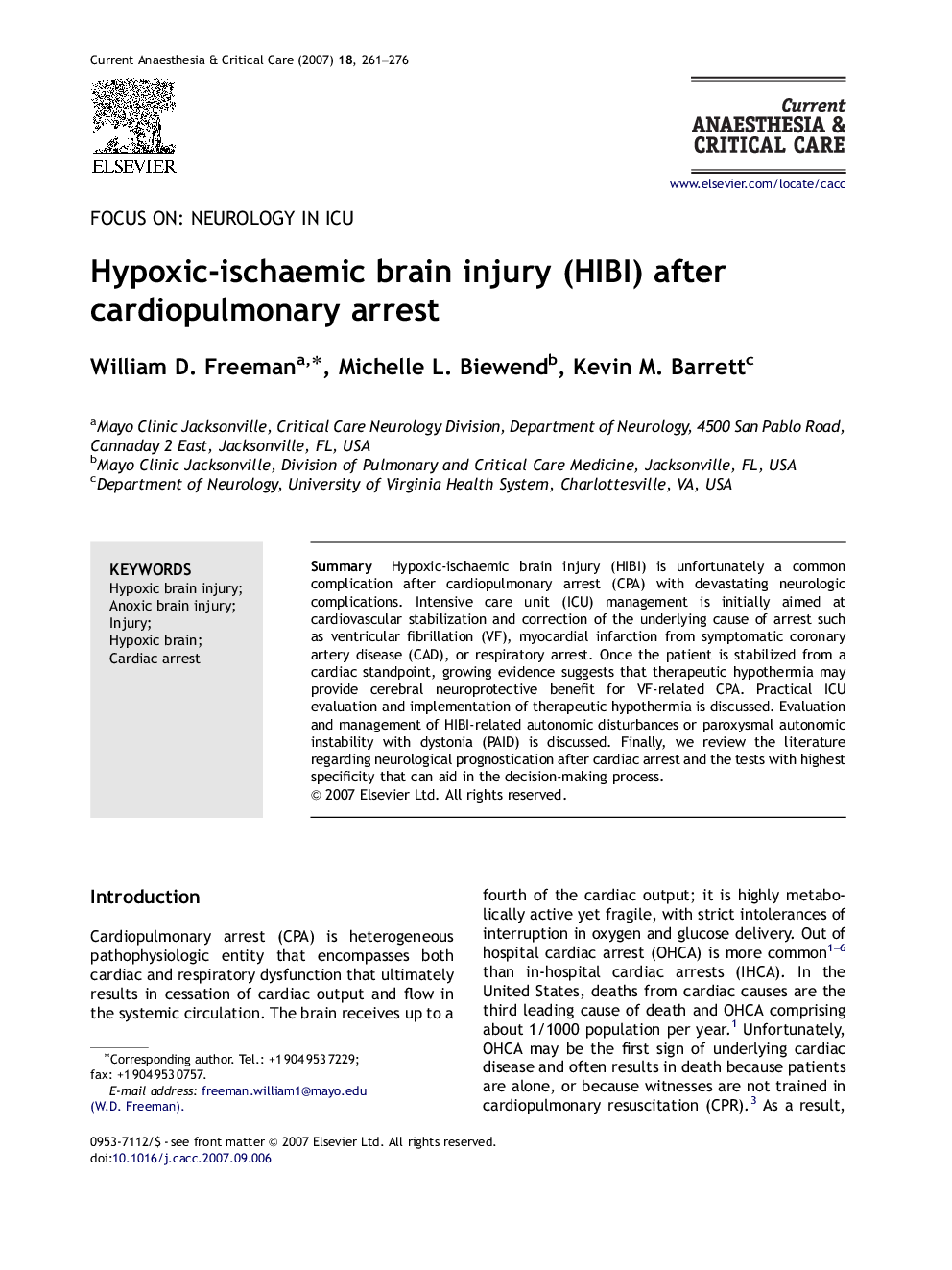| کد مقاله | کد نشریه | سال انتشار | مقاله انگلیسی | نسخه تمام متن |
|---|---|---|---|---|
| 2607789 | 1562791 | 2007 | 16 صفحه PDF | دانلود رایگان |

SummaryHypoxic-ischaemic brain injury (HIBI) is unfortunately a common complication after cardiopulmonary arrest (CPA) with devastating neurologic complications. Intensive care unit (ICU) management is initially aimed at cardiovascular stabilization and correction of the underlying cause of arrest such as ventricular fibrillation (VF), myocardial infarction from symptomatic coronary artery disease (CAD), or respiratory arrest. Once the patient is stabilized from a cardiac standpoint, growing evidence suggests that therapeutic hypothermia may provide cerebral neuroprotective benefit for VF-related CPA. Practical ICU evaluation and implementation of therapeutic hypothermia is discussed. Evaluation and management of HIBI-related autonomic disturbances or paroxysmal autonomic instability with dystonia (PAID) is discussed. Finally, we review the literature regarding neurological prognostication after cardiac arrest and the tests with highest specificity that can aid in the decision-making process.
Journal: Current Anaesthesia & Critical Care - Volume 18, Issues 5–6, 2007, Pages 261–276